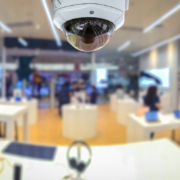Business Security System: The Importance of Training Employees
In today’s fast-paced digital landscape, safeguarding your business isn’t just about installing the latest security systems. It’s about ensuring that your personnel are equipped with the knowledge and skills to effectively utilize these systems. Training your staff on business security systems is not merely a precaution; it’s a proactive measure that can save your business from costly breaches and devastating losses.
Why is Training Essential?
1. Prevention is Key: Security breaches can result in significant financial losses, damage to your reputation, and legal consequences. By investing in comprehensive training for your personnel, you’re taking proactive steps to prevent such incidents from occurring in the first place.
2. Maximizing System Efficiency: Your security systems are only as effective as the people who operate them. Proper training ensures that your personnel understand how to utilize the systems to their full potential, maximizing efficiency and effectiveness in detecting and responding to security threats.
3. Response Preparedness: In the event of a security breach, a well-trained team can respond swiftly and effectively, minimizing the impact and mitigating further damage. Training empowers your staff to handle emergencies calmly and efficiently, potentially saving lives and livelihoods.
4. Cultivating a Security-Conscious Culture: Training instills a culture of security consciousness within your organization. When every employee understands the importance of security measures and their role in upholding them, it creates a collective effort to protect the business from internal and external threats.
5. Compliance and Regulations: Many industries are subject to strict regulations regarding security measures and data protection. Proper training ensures that your business remains compliant with these regulations, avoiding fines and penalties that could result from non-compliance.
Key Components of Personnel Training on Business Security Systems
1. System Familiarization: Training should begin with a thorough understanding of the business security systems in place, including access control systems, surveillance cameras, alarms, and cybersecurity measures. Personnel should know how each component functions and how to operate them effectively.
2. Security Protocols and Procedures: Establish clear protocols and procedures for responding to security threats. Include protocols for reporting suspicious activities, handling breaches, and evacuating premises if necessary. Regular drills and simulations can reinforce these procedures and ensure that staff are prepared for emergencies.
3. Cybersecurity Awareness: With cyber threats on the rise, cybersecurity training is essential for all personnel who handle sensitive data or use digital systems. This includes training on identifying phishing attempts, creating strong passwords, and following best practices for data protection.
4. Role-Specific Training: Tailor training programs to the specific roles and responsibilities of your staff. For example, front desk personnel may receive training on visitor management protocols, while IT staff may require more in-depth training on network security and system maintenance.
5. Ongoing Education and Updates: Security threats are constantly evolving, so training should be an ongoing process rather than a one-time event. Regular refresher courses and updates on emerging threats ensure that your personnel stay informed and equipped to address new challenges.
In conclusion, in an age where security threats are ever-present, training your personnel on business security systems is not just a good practice; it’s a necessity. By investing in comprehensive training programs, you’re not only protecting your business assets but also fostering security awareness that permeates throughout your organization. Don’t wait until it’s too late. Start prioritizing personnel training on security systems today, and safeguard your business.
Contact WISE Business Solutions today for your free security consultation!








